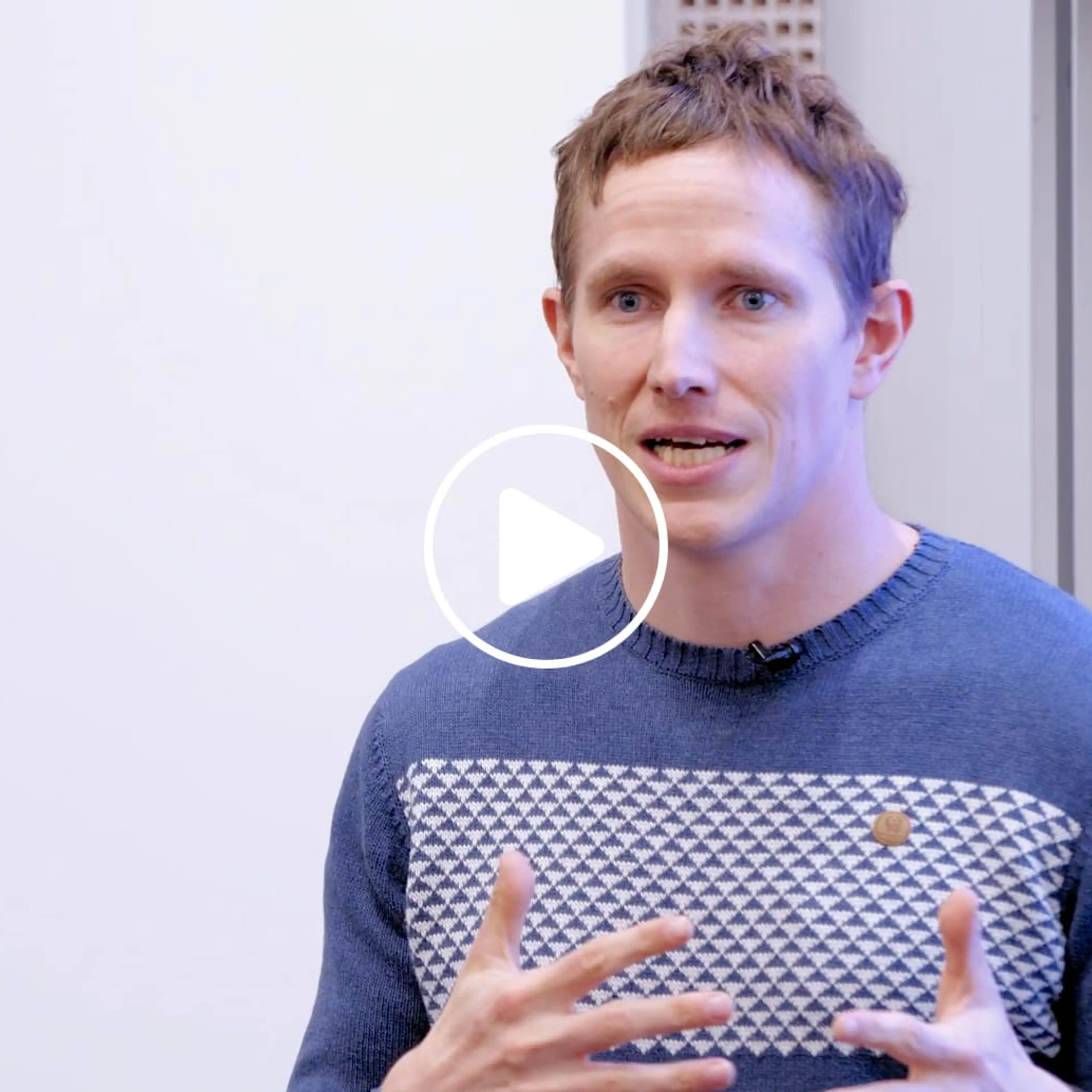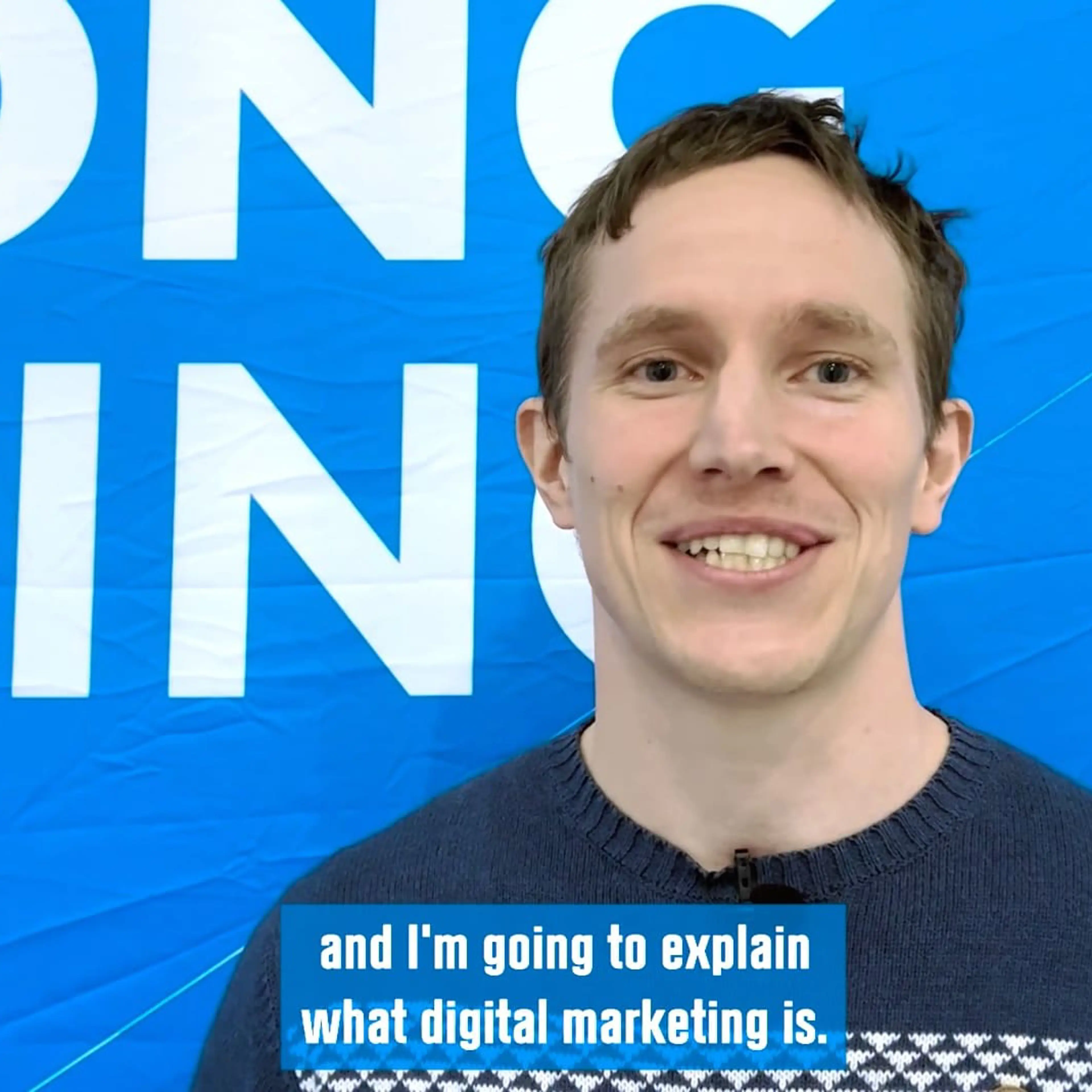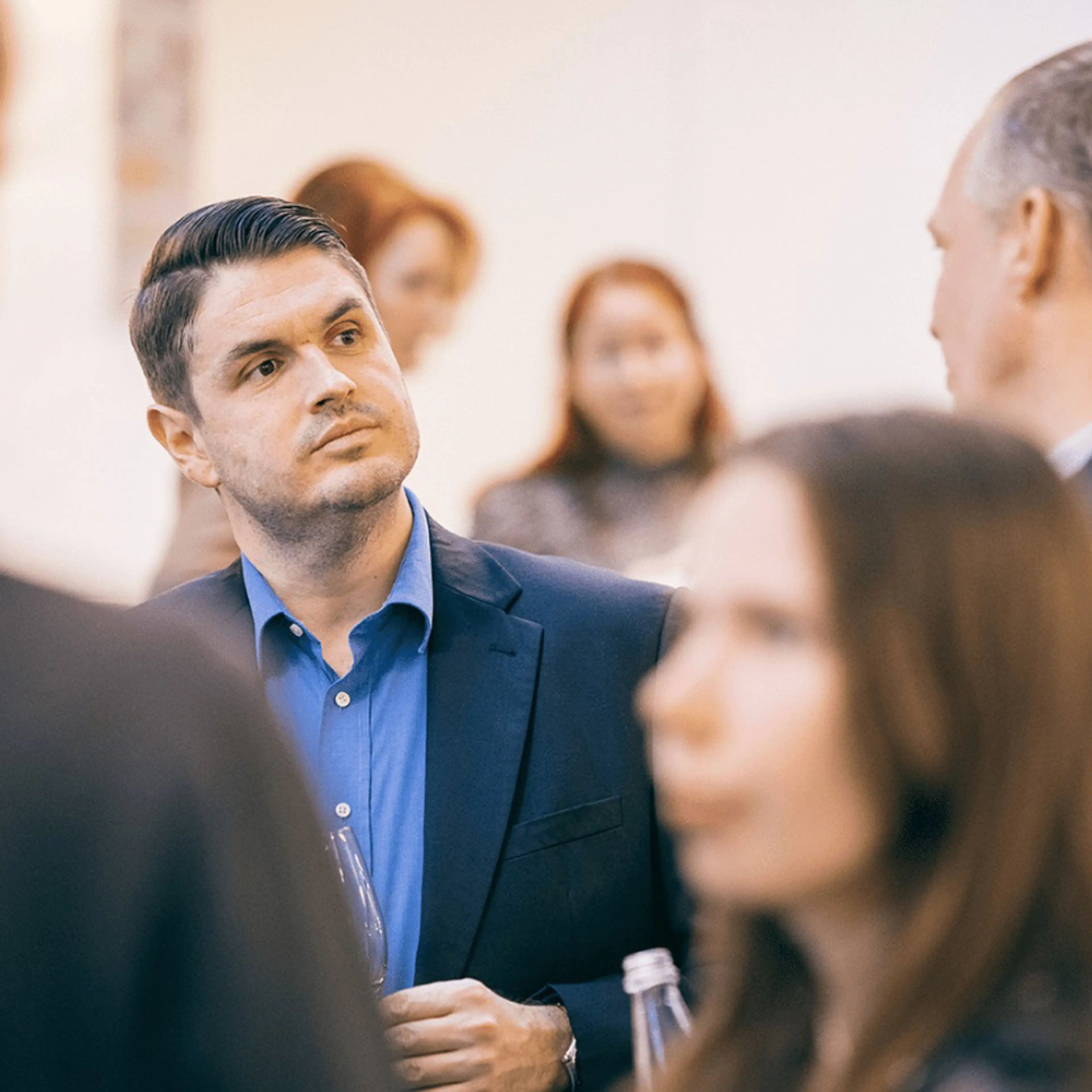What force drives you to start over? When you have proven yourself through one entrepreneurial success after another and have prominent board positions in large Danish and international companies, why not just sit back and enjoy family life in London with your wife and three children?
For René Rechtman, it's about not being able to let it go. If the philosopher Immanuel Kant were alive today, he would possibly expand his term 'the ethicist' to include the 'entrepreneur'. And René Rechtman would be comfortable in that category.
From EU bureaucracy to big business
René Rechtman studied political science at the University of Copenhagen. Mostly because he loved politics and economics, but also because he didn't quite know what else to choose.
"I could probably just as well have studied politics or one of the lines that are on CBS, but because I also grew up in a political home, my choice fell on political science."
Even during the bachelor's part of his education, however, it was clear to René Rechtman that the political path was not to be his.
“I was an intern at the European Commission, and there I saw how fragmented and bureaucratic it all was. It changed my direction to a degree that has shaped the rest of my life," says the entrepreneur, who now focused on pluralistic working life and how, through ethical business models, you could help shape the political landscape.
"I wrote a thesis on how to sell commercial television into the, at the time, extremely restrictive Nordic countries, and before I finished, I was considered a specialist in Public Affairs and was employed at Hill & Knowlton, where we did major campaigns for Coca Cola, Colgate and the steel industry.”
But René Rechtman didn't just have a flair for understanding the political games of companies. His curious, open mind also made him one of those who saw opportunities "everywhere".
“I became good friends with one of the directors of The Body Shop at a conference in Holland, David Wheeler, and he introduced me to the concept: Triple Bottom Line. You should not just measure turnover on one parameter. But on three. The social footprint, the environmental footprint and the financial one. Many companies only looked at one of the dimensions, but The Body Shop worked with all three parameters at once.”
It made obvious sense to René Rechtman, and these are still the three indicators he, among other things, bases his own work on it to this day.
"There must be a meaning to things," he says.
The way into a world of tech
After a brief flirtation with a business Ph.D. and a job at the investment company Incentive, it was clear to René Rechtman that as long as he lived by advising others, no salary or job security could trump the drive in him to start his own business.
“I was invited to Stockholm by two acquaintances. They had an idea, and I was ready for something new," he says.
It was at the end of 1999. The two friends were named Felix Hagnö and Martin Lorentzon. Felix was quiet and orderly, Martin chaotic and energetic. But both were sweet, visionary and brave. They later became respectively an investor in and co-founder of Spotify. Today, they are among Sweden's wealthiest men.
"We came together to create TradeDoubler, and it was during the eight years I worked on that project that I developed the most," he recalls.
TradeDoubler made headlines because the company created strategic, digital marketing tools that could be measured. In other words, customers got the result they paid for.
“We had to familiarize ourselves with everything ourselves. From how to price your services and get financing, to how to buy furniture, computers and set up an office environment," he says.
Eight years later, the three friends were behind the first major IPO of a media tech company in Europe.
“Our IPO (Initial Public Offering, ed.) was EUR 375 million and our share prices exceeded everyone's expectations. But when you 'IPO' your company, you also discover that your baby is no longer your baby. Suddenly the shareholders will make decisions that you don't agree with. And that meant for me that I had to move on.”
Apprenticeship at Disney
René Rechtman had already started investing in startups before he left TradeDoubler. And so he was again contacted by "two talented and friendly boys" who had started a new company in Denmark. It was Claus Moseholm and Jimmy Maymann who together with Balder Olrik had started GoViral. They needed a partner to turn the local business into an international business.
Luck follows the diligent, so the financial crisis in 2008 could not slow down the company's growth and success. In 2011, GoViral was such an important part of the big media picture that the media company AOL bought them.
“I stayed a few years but realised I wanted to try something new. I had invested in tech hubs in the USA, UK, Israel and Denmark and through this got to know many talented and exciting people. One of them was the Israeli Ynon Kreiz, current CEO of Mattel. He talked me into co-investing in Maker Studios in LA, and before long he talked me into joining the project full-time. Among other things, my task was to raise a lot of money to finance the growth," recalls René Rechtman.
However, the work quickly became unnecessary, because Disney came in and bought the entire store.
“The four years I worked for Disney again taught me something completely new. I was surrounded by 'A-players'. The employees at Disney are not entrepreneurs, they are the best at what they do. It is expertise and results that are the biggest currency there,” he says, pointing out the most important learning he took with him from Disney.
"Overall, I learned at Disney to think very big and always religiously protect quality brands. It is crucial for a winning brand that the values are clear. Disney has created a brand that for many is bigger than their religion. In Europe, we are not at all aware of the unifying power Disney has in the US. The brand is huge. People get married and engaged at Disneyland, they celebrate family anniversaries and personal successes there. Disney is the soundtrack to childhood. There is no doubt that there is enormous respect for Disney in the entertainment industry, and many of the brightest people in the media industry have either worked with or for Disney at some point in their careers,” he says.
After four years as the Sorcerer's Apprentice, Rechtman left Disney. He missed challenges again and he had discovered a new opportunity in the market. A new adventure to pursue.
It has to make sense
“Children watch an average of three hours a day on a screen. Most of the cartoons they see come from relatively new, smaller production companies. My new company, Moonbug, acquires and consolidates the production companies and the underlying IPs (Intellectual Property – or the rights to all parts of a brand, name or figure, ed.). Then we fill them with the values that we want to equip children with: empathy, care, resilience and self-esteem. I am at a place in my career now where the most important thing for me is not the results in the short term, but to create healthy values and contribute to a better society for our children," he emphasizes.
But isn't it paradoxical that you want to prepare children for life through a two-dimensional cartoon?
"It's easy as a Dane to think that curiosity, empathy and yes, life skills, are something you learn at school, among friends and in the family. But many children are thus lost. To a lesser extent children from Denmark and to a greater extent outside the world. They are left to themselves, and we can make a difference there," explains the director, who is also a father of three himself, and continues:
“For example, when we bought the popular series Cocomelon, created by South Korean immigrants in LA, I ensured that the quality of messaging, production and all parts of the franchise was elevated,” he says, referring to the only two ways that, he believes that you can operate according to the media market:
"Today there are two ways you can operate successfully in the media market. You can do like Disney and spend 200-300 million dollars to market a great movie such as Soul. Or you can use my model: buy something that already works, but make the content better for an audience that is already there. Moonbug has raised $165 million in the first round, and $120 million in a second round.”
René Rechtman does not go after the low-hanging fruit when he enters new businesses. It must make sense to invest your money in a visionary idea and some talented people.
“I invest in those who want to change the world. Those who want to create disruption so that things will be better. I want to have fun, do things differently, question the status quo.”
Progress rather than safety
We are at the end of the conversation, and the energy has neither gone out of the voice nor the willingness to answer.
“There is always a balance and compromises in relation to what you can and cannot do. Being an entrepreneur and building businesses is not for everyone. It sounds romantic, but not everyone is comfortable in constant change. For me, this kind of existence was not planned. I'm not the type to make plans. I enjoy the fact that I don't know what will happen in two years, and I don't need to have an Excel sheet with a five-year plan," analyzes René Rechtman.
The offer was otherwise early in his career. About a permanent job in a capital fund with a high salary, pension scheme and fixed bonus. But it never felt like a real possibility.
“I thought it was so far away from my world. I have always made my choices with a yin and yang between emotions and rationality," he says, and then interrupts himself:
"But it has turned out to be the most rational thing to do, because I have a good feeling about which trends will dominate in the future. I have always gone with the right gut feeling at the right time.


